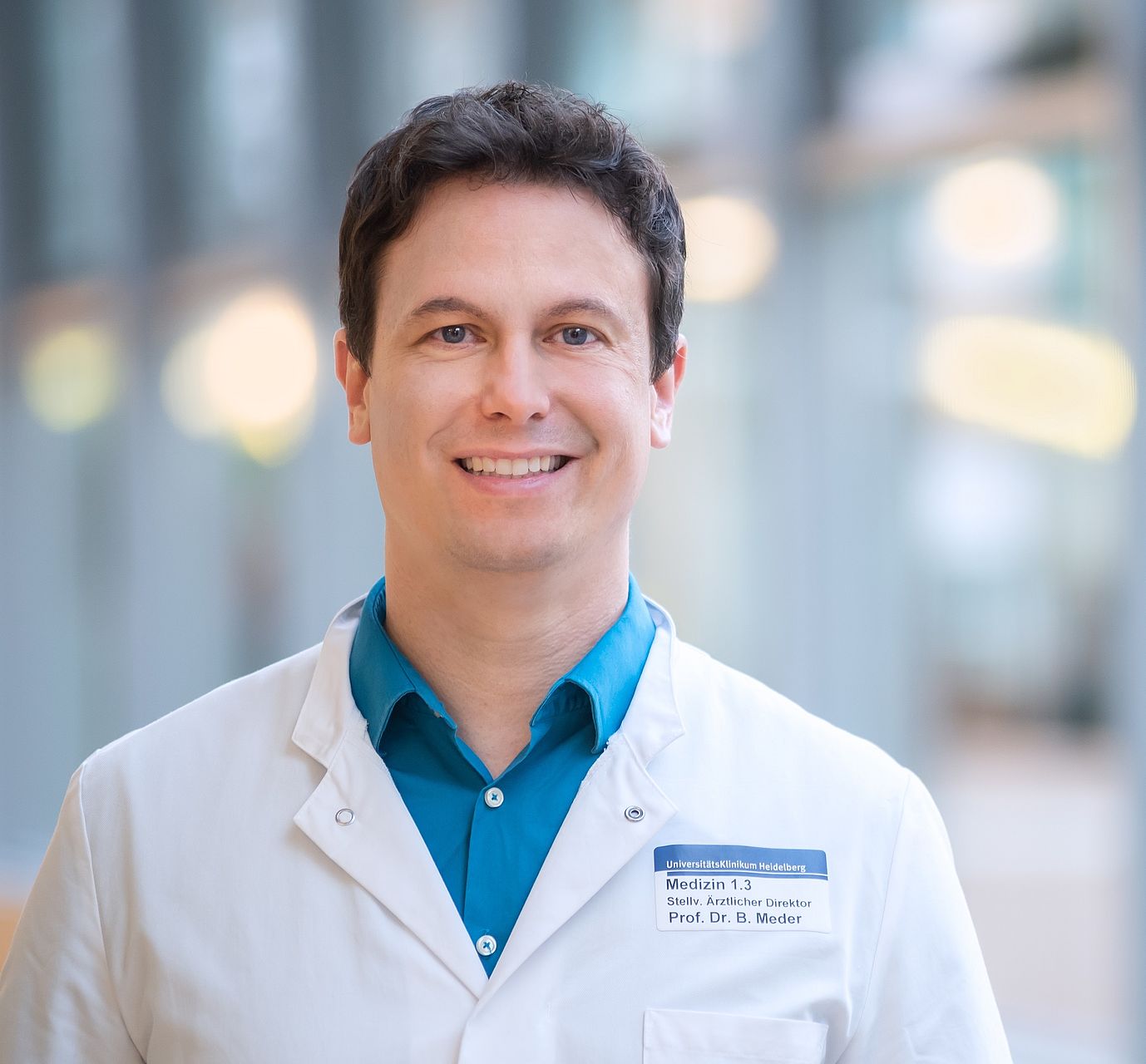Benjamin Meder is a Principal Investigator at the German Center for Cardiovascular Research (DZHK) and Head of the Institute for Cardiomyopathies (ICH) at Heidelberg University Hospital. "My goal is to harness new digital, genomic, and molecular information to improve the care of cardiovascular patients," Meder said. He took up the professorship in November 2022.
The Heidelberg cardiologist specializes in patients with cardiomyopathies and has spent the last few years studying how genes and environmental factors influence the development of cardiomyopathies and how precise interventions in disturbed signaling cascades can improve diseased heart muscle.
In addition to a DZHK site project on the genetics and epigenetics of cardiomyopathies, Benjamin Meder is the principal investigator for TORCH-Plus-DZHK21: This is a unique collection of patient data and biospecimens to find out more about rare cardiomyopathies in particular. The prospective modular study hub is the world's largest data and biospecimens collection on myocardial insufficiency and has been consistently developed at the DZHK since 2014.
In 2019, he received the Else Kröner-Fresenius Foundation Excellence Fellowship and the Wilhelm P. Winterstein Prize in 2017 and 2010 for his research on the causes and early detection of heart failure. In his work, he performs extensive genetic analyses and uses artificial intelligence methods and other computer-based approaches to link multiple clinical and biological levels of information.
Contact: Christine Vollgraf, Press and Public Relations, German Center for Cardiovascular Research (DZHK), phone +49 30 3465 529 02, presse(at)dzhk.de
Benjamin Meder accepted W3 professorship "Precision Digital Health"

